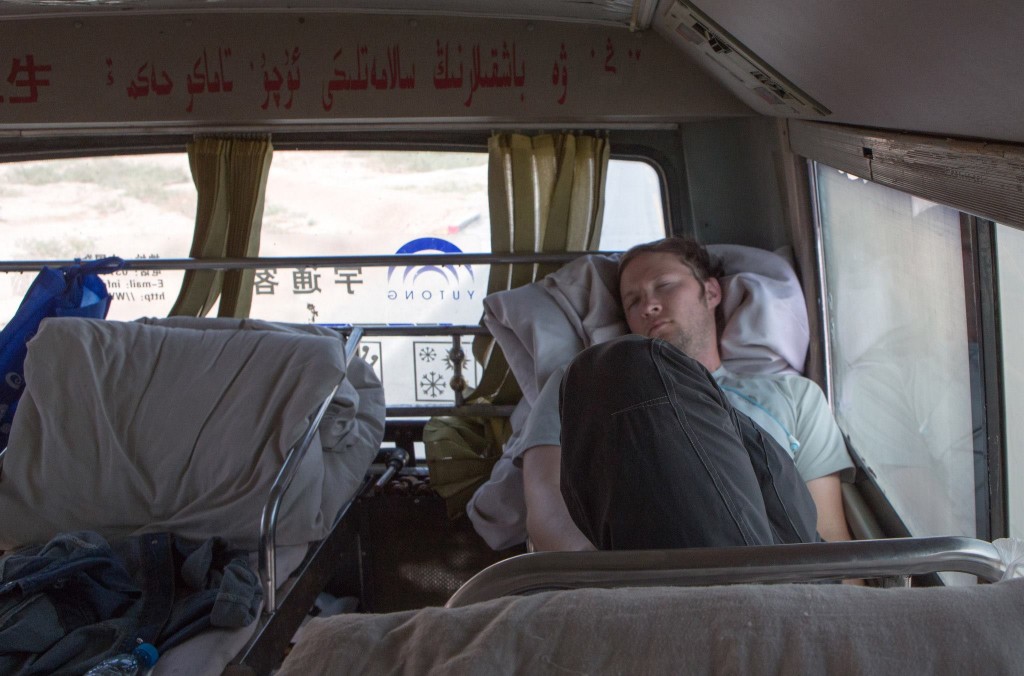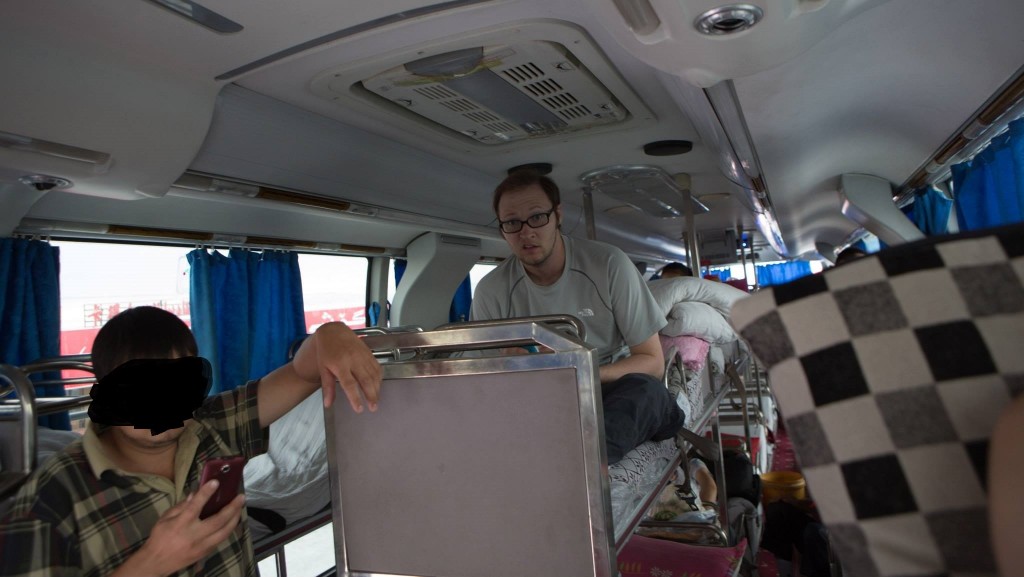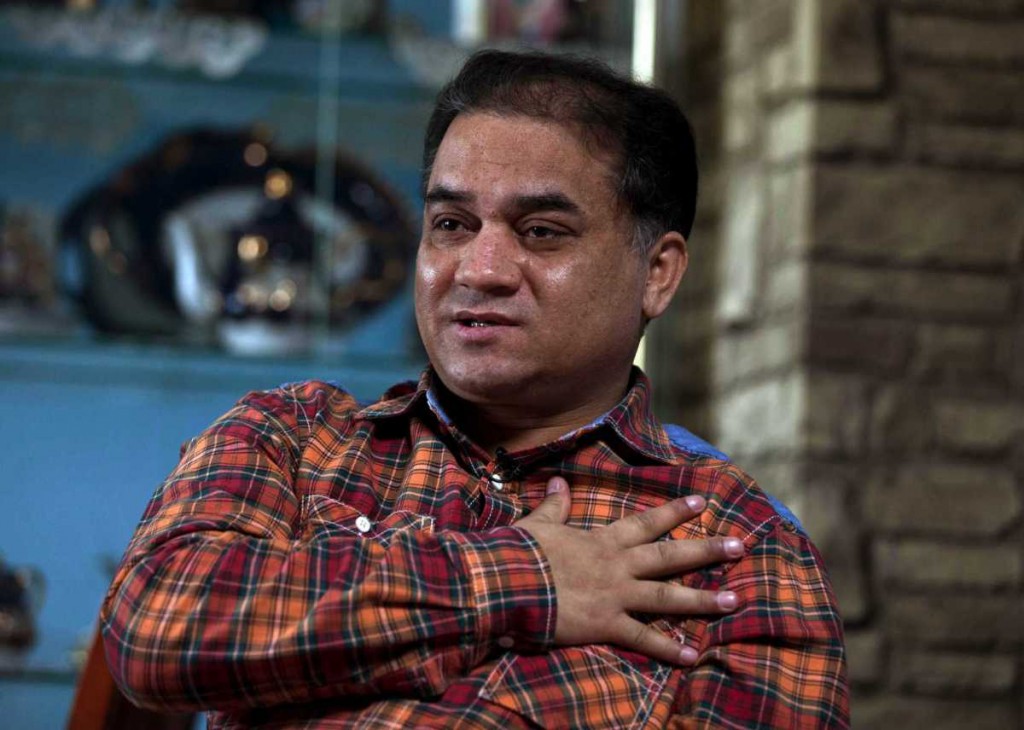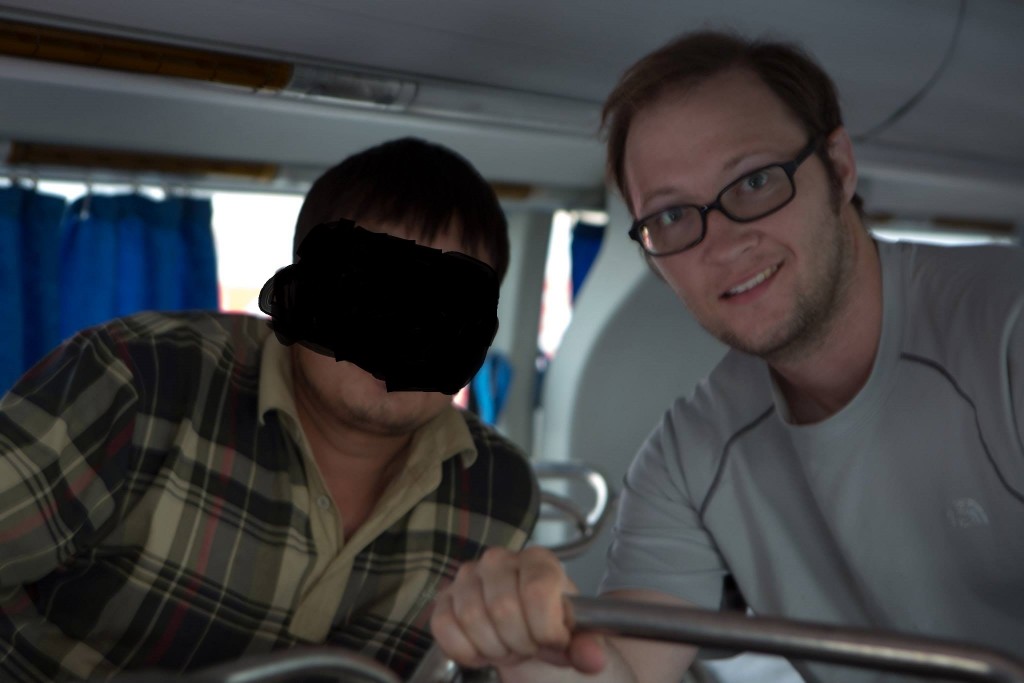We were leaving Turpan on a sleeper bus, the bad road bumping along. The landscape was that of a brush desert, low, green-gray bushes the only plants that could hang on to life in this environment of extremes. The wind had picked up that day, rocking our bus from side to side and tossing tumbleweed across our paths. To the north, the Tianshan Mountains rose in the distance, but to the south we could see nothing but the horizon and the never-ending desert bowing before it.
On the bed across from mine, a Uighur sat spooning yoghurt out of a bowl, trying his best to keep from spilling it onto his pillow each time we crossed a pothole. He was my age, but he seemed older. Perhaps, that is the inevitable maturity that comes with having a wife and two kids and having them depend on you for support. He was fairly typical of a Uighur. He had availed himself of the policy allowing minority groups to have two kids instead of just one, and, like most Uighurs, he had not attended college.
As we got to talking more, he began to complain of all the troubles he and the other Uighurs have. He opened up freely, easily. I did not need to ask. He wanted to tell me about the Uighur’s situation. He spoke of Rebiya, a Uighur woman who leads a group in Washington D.C., promoting Uighur causes in the U.S. and the Berlin-based World Uyghur Congress. Both groups are hated by the Chinese government as supposed Uighur separatist groups, and talking about either could land him in serious trouble.
He told me that in Hotan, where he was going, the Chinese government had cut off any access to the 3G wireless system, meaning residents had no way of accessing the internet from their smartphones on the street. I later found he was probably right; in Kashgar, the city that we were heading to, we were never able to pick up 3G service in the handful of days we spent there, and Hotan was probably under a similar regime.
He claimed he was friends Ilham Tohti, an economics professor at Beijing’s Ethnic University, who had been arrested on trumped up charges of separatism earlier in the year. He showed me the man’s photo in his phone.
I had no way of confirming whether or not he knew Professor Tohti, but I was able to confirm something else he said about Beijing’s Ethnic University. My bus mate told me how, the Chinese government had instituted an unspoken policy not allowing Uighurs to go to Beijing at all, for the most part. If you say you are going to Beijing, he claimed the police, or, as he called them in his bad Chinese, The Safety, will take you away.
This ban includes Uighurs who want to go to Beijing’s Ethnic University, China’s premier institution for ethnic minorities. Later on, I talked to a professor of English at one of the other Ethnic Universities in Manchuria (there are several Ethnic Universities scattered across China, but Beijing’s is the best), and he confirmed that many of his Uighur students had come to his school because this new policy banned them from Beijing Ethnic University.
He also told me of a new government policy issuing a secondary I.D. Card for those who live in Xinjiang. The card, he claimed, targeted Uighurs, hoping to better control them. The card is similar to a permanent record, containing records of any slight problem that a person has had with the law, anything they have said against the government. Each time you pass through a checkpoint (in Xinjiang you have to pass through militarized checkpoints to enter and exit most towns), you have to swipe your card. If you have a long record, the police can harass you or take you in for interrogation. Because of this, Uighurs are now talking of living in a prison without walls.
He also complained that most Uighurs were now not allowed to travel outside the country. I heard many complaints about this from Uighurs, and also from Tibetans, though I traveled into Kyrgyzstan with two Uighurs, so I am not sure how true this is.
In the end, he said something that really struck me. “The Han are Chinese,” he said. “And the Uighurs are Chinese. So why aren’t we the same?” After that he solemnly trailed off into thought.




I’ve been enjoying reading your blog about your travels in this part of the world. It’s a really extraordinary place and it’s great that your wonderful photos and narratives are introducing it to a broader audience.
I am quite concerned about this post however. As someone who has lived in Xinjiang for a while, I have seen journalists and travelers come and go and while people love to report on the severe political conditions here, they sometimes forget that these conditions may also have consequences for their sources. I have seen people’s lives complicated for years by even answering a phone call from a journalist even if they don’t say anything critical. Meanwhile, the journalist moves on and has no idea of how his/her actions have impacted people.
The man in your photo is quite identifiable even with his eyes blacked out. I simply ask you to weigh the costs and benefits of posting a photo like this. I am assuming that the benefit to you of posting his photo is relatively small. However, the consequences of having his photo attached to critical comments against government policies may be catastrophic.
I appreciate what you’re doing and wish you many further interesting meetings in your trip. I just ask that you respect the trust of your new friends and make an effort to do no harm (even if that harm is inadvertent).
All the best and I’ll look forward to reading the rest of your adventures!